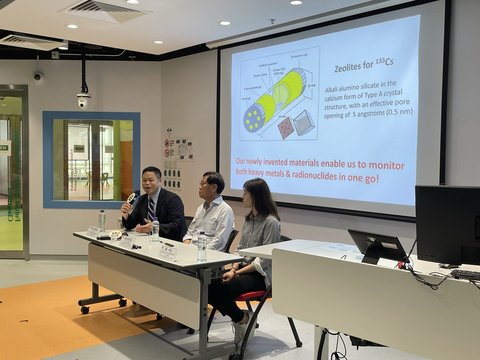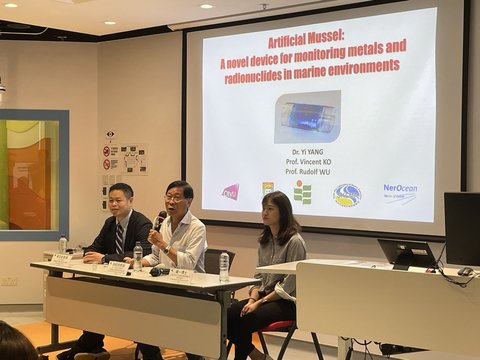With the support of the State Key Laboratory of Marine Pollution, a cross-institutional study involving the Education University of Hong Kong, the City University of Hong Kong, and the University of Hong Kong, has uncovered a promising new method for monitoring radionuclides in the ocean. The study has demonstrated that “Artificial Mussels (AMs)” are highly effective for monitoring radionuclides in aquatic environments and the research findings have been published in the Journal of Marine Science and Engineering. The use of low-cost AMs allows for the long-term and large-scale monitoring of nuclear wastewater.
更多新聞
無綫新聞: 本港三間大學共同研究藉人工青口測海水核污染物 冀大規模應用於海水監測
https://news.tvb.com/tc/local/64a3f93fc2ea9a2f9f42d7ca/
有線新聞: 三間大學共同研發「人工青口」 監測海水放射性物質含量 每個成本一美元
https://www.i-cable.com/%E6%96%B0%E8%81%9E%E8%B3%87%E8%A8%8A/141984/
星島網: 教大跨院校團隊研發人工青口監測海水放射物 成本大降適合長期檢測
https://std.stheadline.com/realtime/article/1936734/
SCMP: Hong Kong scientists flex technological ‘mussels’ as they unveil new way to check radiation levels in marine areas.
https://www.scmp.com/news/hong-kong/health-environment/article/3226518/hong-kong-scientists-flex-technological-mussels-they-unveil-new-way-check-radiation-levels-marine
The Standard: HK boffins invent 'artificial mussel' to test ocean radioactivity
https://www.thestandard.com.hk/section-news/section/11/253946/HK-boffins-invent-'artificial-mussel'-to-test-ocean-radioactivity

